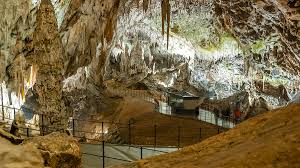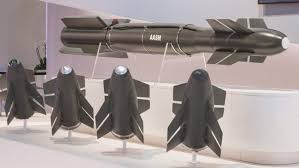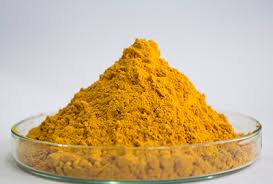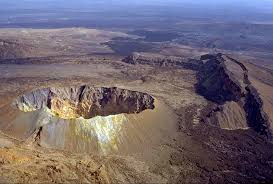Today’s Current Affairs: 26th November 2025 for UPSC IAS exams, State PSC exams, SSC CGL, State SSC, RRB, Railways, Banking Exam & IBPS, etc
Table of Contents
Bharat NCAP 2.0:

The Ministry of Road Transport and Highways (MoRTH) recently released a comprehensive draft for Bharat NCAP 2.0, a significantly expanded version of the country’s crash test rating programme.
- The Bharat New Car Assessment Programme (Bharat NCAP) is an indigenous star-rating system for crash testing cars, under which vehicles will be assigned between one to five stars, indicating their safety in a collision.
- It is an ambitious joint project between the Government of India (GoI) and Global NCAP, the regulatory body behind the safety crash test ratings.
- Objective is To help consumers make an informed decision before purchasing a car, thereby spurring demand for safer cars.
- Under the Bharat NCAP, cars voluntarily nominated by automobile manufacturers will be crash tested as per protocols laid down in the Automotive Industry Standard (AIS) 197.
- Vehicles tested under the Bharat NCAP are evaluated across three critical safety domains: adult occupant protection, child occupant protection, and safety assist technologies.
- Only right-hand drive passenger vehicles on sale in India and weighing less than 3,500 kg are eligible for consideration.
- Base variants of cars are to be tested, and ratings will be applicable for four years.
- Besides internal combustion engine (ICE) models, CNG cars as well as battery-powered electric vehicles are eligible to undergo the safety test.
- It is a voluntary programme under which the cost of the car for assessment for star rating and the cost of such assessment are borne by the respective vehicle manufacturer or importer.
- Bharat NCAP is overseen by the Ministry of Road Transport, but is an independent body.
- The current Bharat NCAP regulations remain valid until September 30, 2027, after which Bharat NCAP 2.0 is expected to be implemented by October 2027.
Bharat NCAP 2.0 Proposed Guidelines:
- It brings in fresh mandatory tests, revised scoring methods, and updated safety verticals.
- Notably, for the first time, vehicles will be assessed on vulnerable road user protection.
- The Bharat NCAP 2.0 proposal introduces a 100-point rating system across five pillars: Crash Protection, Vulnerable Road-User Protection, Safe Driving, Accident Avoidance, and Post-Crash Safety.
- The crash test will be expanded from two to five and will now have Male, female, and child dummies for testing.
- The cars will go through offset frontal impact, full-width frontal impact, side impact, pole side impact, and rear impact.
- Electronic stability control (ESC) and curtain airbags will be compulsory for any model seeking a star rating.
- Autonomous emergency braking (AEB) remains optional. Models with side-facing seats will not be eligible for a rating.
- From 2027-29, a 5-star rating will require 70 points, and this would rise to 80 points from 2029-31.
- Minimum scores will also apply across each pillar.
Postojna Cave:

Researchers from Poland, the United States, and Slovenia recently worked out exact equations for stalagmite shapes, then checked them on real cave specimens from Postojna Cave in Slovenia.
- It is located in western Slovenia.
- It is a limestone cave carved out by the Pivka River over millions of years.
- It is the only karst cave with a railway.
- The cave system hosts Proteus anguinus — a blind, colorless, snake-like amphibian, with both lungs and gills, feeding on snails and worms.
HAMMER Weapon System:

Bharat Electronics Limited and Safran Electronics and Defence (SED) signed a joint venture cooperation agreement for the production of the HAMMER Weapon System in India.
- The HAMMER (Highly Agile and Manoeuvrable Munition Extended Range) is an air-to-ground precision-guided weapon system developed by Safran, a French aerospace and defence company.
- It is also known as a glide bomb.
- Features of HAMMER Weapon System:
- Range: HAMMER precision-guided munitions have a range of up to 70 km.
- It can be fitted to standard bombs of 250kg, 500kg, and 1,000kg weights.
- It is resistant to jamming, and capable of being launched from low altitudes over rough terrain.
- It is difficult to intercept and can penetrate fortified structures.
- Design and Capabilities: It is a precision-guided weapon system known for its high accuracy and modular design, making it adaptable for multiple platforms, including the Rafale and Light Combat Aircraft Tejas.
- Precision-Guided Weapon system is a guided weapon intended to destroy a point target and minimize collateral damage.
- These are also known as “smart bombs”.
- These systems incorporate a guidance system (typically in the front of the precision munition), a payload, and fins.
Auramine O:

India continues to face recurring episodes of chemical adulteration in food, particularly through the use of non-permitted synthetic dyes and one of the most persistent among them is auramine O.
- Auramine O is a synthetic yellow dye produced from compounds such as dimethylaniline and formaldehyde.
- The dye appears as yellow flakes or powder and dissolves easily when mixed with solvents.
- It is not approved for use as a food colour in India, the European Union, and the United States.
- It is extensively used in industry, including textile and leather processing, printing inks, paper manufacturing, and certain microbiological staining procedures.
- It creates health risks like liver and kidney damage, enlargement of the spleen, mutagenic effects that can alter genetic material, and potential carcinogenic outcomes.
- It is classified as an industrial dye by the regulators in the S., EU, and East Asian nations and its presence in consumables triggers product recalls and import alerts.
- The International Agency for Research on Cancer (IARC) classifies auramine as a substance that is possibly carcinogenic to humans.
Hayli Gubbi Volcano:

The Hayli Gubbi volcano erupted for the first time after 10,000 years and its massive ash cloud is moving towards northern India.
- It is located in Ethiopia’s Afar region, in northeast of Addis Ababa near the Eritrean border.
- It is a shield volcano that sits within Ethiopia’s Danakil Depression, one of the hottest and most remote areas on the planet.
- It is the southernmost volcano in the Erta Ale range.
- The Erta Ale range is known for its persistent lava lakes and is primarily made up of shield volcanoes.
- Hayli Gubbi has no previously recorded eruptions in modern history.
- Shield volcano are the largest volcanoes on Earth
- They are almost exclusively basalt (a type of lava that is very fluid when erupted).
- These volcanoes are not steep. They are broad volcanoes with gentle slopes.
- They are built by repeated eruptions that occurred intermittently over vast periods of time.
- Ash cloud forms when a volcano erupts and sends volcanic materials into the atmosphere.
- It contains fine volcanic ash, sulphur dioxide, and tiny fragments of rock and glass.
- It has an adverse effect on human health, causing respiratory problems, eye irritation and skin discomfort.
Mekedatu Dam:

Karnataka has announced that it would submit a revised Detailed Project Report (DPR) to the Centre for the Mekedatu dam across the Cauvery river.
- This comes after Tamil Nadu raised concerns over Karnataka’s Mekedatu dam, citing Cauvery water disputes, excessive water storage, and irregular water release.
- Mekedatu Dam involves constructing a balancing reservoir near Kanakapura, Karnataka, at the deep gorge of Mekedatu where the Cauvery and
- Arkavathi rivers meet aims to provide drinking water to Bengaluru and nearby areas and generate 400 MW of hydroelectric power.
- Controversy: Tamil Nadu, the lower riparian state, strongly opposes the project, fearing reduced downstream water flow and is central to the Cauvery River water sharing dispute.
- Cauvery River Water Dispute dispute involves Karnataka, Tamil Nadu, Kerala, and Puducherry. The Cauvery river originates in Karnataka, flows through Tamil Nadu, with major tributaries from Kerala.
- The dispute is over 150 years old, originating from 1892 and 1924 agreements between the Madras Presidency and Mysore, that required the upper riparian state (Karnataka) to obtain consent from the lower riparian state (Tamil Nadu) for construction projects.
EB-1A & EB2-NIW Visa Program:

The H-1B visa fee hike to USD 100,000 starting September 2025 is driving Indian professionals to explore alternatives like the EB-1A and EB2-NIW visas, especially amid stricter U.S. immigration policies.
- The EB-1A is for individuals with extraordinary abilities in fields like science, arts, business, or education.
- It does not require employer sponsorship, but applicants must meet at least three out of ten criteria, such as significant contributions or high remuneration.
- It leads to permanent residency (Green Card) with no time limit.
- The EB2-NIW allows self-petition for professionals working in sectors critical to U.S. national interests, such as technology and healthcare. Unlike standard EB2, it doesn’t require employer sponsorship.
- It leads to permanent residency with no time limit if qualifications are maintained.
- Indians make up a significant proportion of applicants for both EB-1A and EB2-NIW, especially in high-skill sectors like technology and research.
- They offer faster processing, long-term stability, and valuable green card opportunities, making them strong alternatives to the uncertain H-1B.
India Clinches Women’s Kabaddi World Cup Title Again:
India’s women’s kabaddi team delivered another historic performance by winning the Women’s Kabaddi World Cup 2025, defeating Chinese Taipei 35–28 in the final held in Dhaka, Bangladesh. With this triumph, India successfully defended its title and cemented its status as a global kabaddi powerhouse.Captain Ritu Negi and Vice-Captain Pushpa Rana led the team with poise and clarity
PM Modi Unveils Stamp and Coin Honouring Guru Tegh Bahadur:
On the occasion of the 350th martyrdom anniversary of Sri Guru Tegh Bahadur, Prime Minister Narendra Modi led national commemorations by unveiling a commemorative postage stamp, a special coin, and a coffee-table book dedicated to the Ninth Sikh Guru. The grand tribute was held at Jyotisar in Kurukshetra, Haryana, a site deeply rooted in Indian spiritual history. The event served as a reminder of Guru Tegh Bahadur’s sacrifice for religious freedom and interfaith harmony
Andhra Pradesh to Get 3 New Districts:
The government of Andhra Pradesh has approved the creation of three additional districts, increasing the total number of districts in the state from 26 to 29. The decision cleared by N. Chandrababu Naidu on behalf of the state — also includes the formation of five new revenue divisions and a new mandal, reshaping the administrative map for better governance and local access to civic services.
New Districts to Be Formed,
Polavaram
Markapuram
Madanapalle
India’s FY26 GDP Growth Forecast:
India’s economic outlook has received a significant upgrade as India Ratings and Research (Ind-Ra) revised its FY26 GDP growth projection upward to 7%, reflecting improved domestic momentum and subdued external risks. This upward revision from the earlier estimate of 6.3% (made in July 2025) aligns with India’s strong economic performance in the April–June quarter (Q1 FY26), where GDP surged by 7.8%, the fastest growth in five quarters.
SEBI Proposes Changes:
The Securities and Exchange Board of India (SEBI) has proposed a key revision to the framework governing Basic Services Demat Accounts (BSDA). In a draft circular released on November 25, 2025, SEBI suggested that zero-coupon, zero-principal (ZCZP) bonds should be excluded from the valuation of securities used to determine BSDA eligibility. This development comes as part of a broader review of BSDA norms, aimed at aligning the eligibility criteria with the evolving nature of financial instruments and improving the focus on genuine small investors. A Basic Services Demat Account (BSDA) is a simplified demat account facility introduced by SEBI in 2012. It is designed to reduce the cost burden on small and first-time investors by capping annual maintenance charges based on the value of securities held.To be eligible, the value of holdings in a BSDA must remain below a prescribed limit, currently ₹2 lakh. Investors can only hold one BSDA across depositories. BSDA accounts offer a reduced cost structure, making market access more inclusive.
Rohit Sharma, two-time T20 World Cup winner, has been appointed as the ambassador for the ICC Men’s T20 World Cup 2026:
Rohit Sharma has been named the official tournament ambassador for the ICC Men’s T20 World Cup 2026. The prestigious event will be jointly hosted by India and Sri Lanka from 7 February to 8 March 2026. Rohit’s selection as ambassador reflects his immense contribution to the shortest format of the game,
- Two-time T20 World Cup winner – part of India’s victorious campaigns in 2007 and 2024.
- Captaincy legacy – led India to the T20 World Cup title in 2024.
- T20I career record – 4,231 runs, average of 32.01, strike rate of 140.89.
Andhra Pradesh Launches ‘Rythanna Meekosam’ to Empower Farmers:
The Andhra Pradesh government launched a large-scale initiative titled ‘Rythanna Meekosam’, a farmer-centric programme designed to provide long-term support under a Five-Point Formula. Spearheaded by Agriculture Minister K. Atchannaidu, the program was inaugurated in Krishna district, and will run from November 24 to 29, with workshops scheduled on December 3 at Farmer Service Centres.
The core of Rythanna Meekosam is a Five-Point Formula that focuses on,
Water Security
Demand-Based Cultivation
Agri-Tech Adoption
Food Processing Expansion
Comprehensive Government Backing




